
J L Smith
I am currently studying a BTh at King's Evangelical Divinity School: http://www.kingsdivinity.org/
Occupation
Bible College Student
Libraries
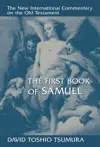

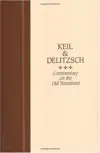

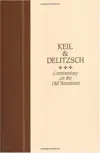

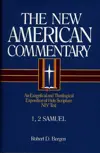

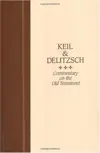

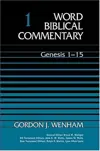


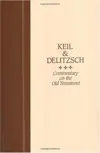

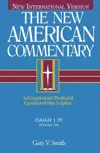

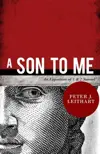

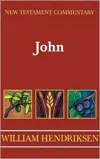

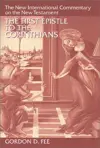

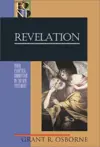

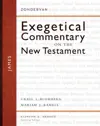

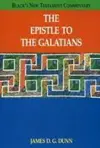





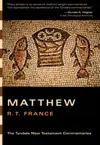

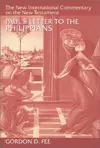

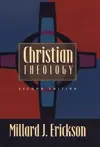

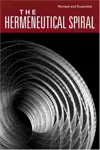

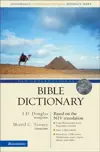

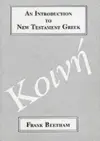

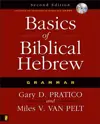

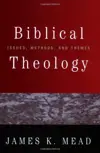

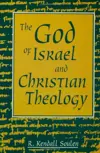

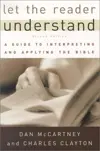



Reviews
James. ZECNT. Zondervan, 2008.
Brilliant layout for this series! I really like the way Kamell incorporates her thesis linking the Holy Spirit and wisdom tradition with James' epistle! This series is a very promising one and may well pip other notable series as more volumes are added (I look forward to Moo's Galatians commentary in this series which is due to be released soon).
The Acts of the Apostles: A Socio-Rhetorical Commentary. SRC. Eerdmans, 1997.
Definitely one of Ben's best contributions!
The Gospel of John: A Commentary: Two Volumes. Hendrickson, 2003.
This is a monster of a commentary! It is fantastic to read through as well. I really like the way Keener makes a punchy point quite quickly. It makes me struggle to understand why Ramsey Michael's even bothered with his very disappointing commentary when you see scholarship on this book like this!
The Epistle to the Galatians. BNTC. Hendrickson, 1993.
This comentary is a little 'weapon'. Even if you don't agree with Dunn's NPP then you will find it difficult to fault his exegesis. I recently asked Doug Moo what he thought of this commentary, and even though he is opposed to the NPP he said it is he best English commentary that is available (he will probably replace Dunn for top spot when his new commentary is published later this year or early next year). As I have said before I really like parts of the NPP that Dunn has manifested. Still, his exegesis is brilliant.
1 Samuel: Looking for a Leader. PtW. Crossway, 2014.
A decent commentary! Woodhouse is clear and concise and writes from a Sydney Anglican standpoint. Not as thorough as Tsumura but pretty much rivals Bergen.
1 Samuel. BO. Liturgical Press, 1998.
This commentary is lucky to even get one star. If I could give no stars I would. It is completely liberal and way out there!
A Son to Me: An Exposition of 1 & 2 Samuel. Canon Press, 2003.
I have to agree with John Philip on this one! It is not your run of the mill commentary by any means. Leithart seems to draw a lot of Hebraisms from the text that technical commentaries often miss because of the Western induced historical-critical method that has been passed down since the Reformation (obviously it began with the heavy recognition of literal meaning to shift away from the Aristotelian hermeneutics of the 'School Men' of the Roman Catholic Church).
He often makes 'tasty' typological observations that should not be discounted easily. He also draws upon the text to give applications to the church of today.
I am giving this 5 stars simply because there is nothing else like it I've come across whilst studying 1 Samuel. i still think any serious Bible student or pastor should get their hands on Tsumura because of his brilliance in regards to the Hebrew language and for a more technical understanding.
The First Epistle to the Corinthians. NICNT. Eerdmans, 1987.
An excellent work that has withstood the test of time!
New International Bible Dictionary. Zondervan, 1999.
This is a good reference source for those who want to check things up quickly as a refresher when studying the Bible. I think it just fails to give enough information at times. It is a handy tool if you are the type of preacher who travels around as it can fit in your suitcase.
Personally I prefer to refer to "The Zondervan Pictorial Encyclopedia of the Bible." (1975 ed.) In this volume the info is a little outdated, but there is just many more issues covered and when issues do overlap the 5 vol. set just has so much more space to deliver more. I only paid 40 USD for that set 12 months ago which really is value for money! (I think the updated version is 129 USD which is still good value considering the new layout and colour pictures)
First and Second Samuel. Int. Westminster John Knox, 1990.
As the Dallas Seminary has touched upon, Brueggemann comes from a 'skeptical' background. I found him to not drive deep enough into the text which is likely because of his supposed neutral theological position between 'fideism' and 'skepticism.' (self proclaimed in his 'Theology of the OT') He rattles on consistently that the books of Samuel are propaganda to support a violent and subversive king in David. He is adament that David stole the kingship from Saul. I found such assumptions difficult to resolve in light of his supposed 'Biblical Theology' position. I often thought to myself: "Where is the evidence to support your ideas Walter?"
If you want a commentary that is not your typical 'run of the mill' 'evangelical,' then this is the one to purchase. In my opinion Tsumura 'owns' him as well as the other works that are available. I look forward to Tsumura's NICOT on 2 Samuel! If you can get only one commentary on 1 Samuel be sure to purchase Tsumura.
The Message of Romans. BST. InterVarsity Press, 1994.
There were some decent offerings here by Stott. I would not recommend this commentary if you were only going to purchase one or two on the book but I did like the fact that he often engaged with thoughts from Lloyd-Jones amongst others that often do not gain enough attention in critical commentaries. He states plainly what is needed and is very accessible.
I particularly liked the way he approached the contentious section of Romans 7. All in all, this commentary is very good!
The Gospel of John. NICNT. Eerdmans, 2010.
After having posted the following link and giving this text a high mark:
http://www.scribd.com/doc/38891147/michaels2
I have had a flick through this 'monster' commentary. I have to say that I am gravely disappointed thus far. Most of the information is simple stuff you already know. He does not go deep enough into thelogical debates and the linguistic difficulties for my liking. It is just 'prima facie' info.
I had a look at the section on Lazarus' rising from the dead and I could not find anything on why this event is mentioned in John's gospel only. I find this to be sloppy. I purchase commentaries for insightful information that stretch me. Thus far nothing has come off the pages. It almost puts me to sleep.
I also find that those who value the grammtico-historical hermeneutic tend to miss out so much of the Jewishness in Scripture. Michaels too easily dismisses the midrash/gammatria in the wedding in Cana account. There are plenty of great commentaries on John out there like Morris and Kostenberger that value this method. I just have found so far that this is a pointless addition to the NICNT series. I feel ripped off.
[Full Review]
The Epistle to the Romans. PNTC. Eerdmans, 1988.
I think Morris' work should not go untouched when studying Romans. His work on Romans 7 is fantastic and goes close to trumping most modern commentaries except maybe Moo in this regard. His work is excellent throughout. You may not come out agreeing with all his analysis on Romans but he is solid all the same.
Romans. NCCS. Cascade Books, 2009.
I have to concur with brother Maher on this one. It was an excellent commentary. It packs a punch for its size. Keener has some real gems in this simple commentary!
Romans. 2 Vols. WBC. Thomas Nelson, 1988.
Fantastic commentary. The Word layout is horrible but I have to be honest and say any serious student/pastor who does not refer to this commentary is making a big mistake. Dunn has been the 'sane' voice within the NPP and his work seems on the money most of the time. It is just unfortunate that others who moved to such a position are not as level headed as he is! This commentary is almost deserving of a 5 if it were not for Moo's contribution.
Pastoral Epistles. WBC. Thomas Nelson, 2000.
Great commentary. Probably the most thorough of all on the pastorals. Horrible layout as it is in the out dated Word series. But the info inside is intense, just the way I like it.
The New Perspective on Paul. Eerdmans, 2007.
I found this book very interesting indeed. It is a combination of articles and conference papers that Dunn has written since his reading of Sander's take on Judaism. Some of the articles do cross over a little which in fairness is to be expected, but it is interesting tracing Dunn's Pauline theology over the years. I would have to say this has been the toughest book for me to take in theologically as my thinking has been so permeated with the Lutheran perspective on 'works of the law'. Since reading I must confess this book has converted me to an NPP position. His arguments are logical and evidenced by so much background information. Love or hate the NPP it is worth looking into. Do not just throw away this ideal because it contains the word 'new' (as I almost did before reading on). I still hold that elements of Judaism were legalistic or manipulated the law which of course lost the laws focus (dietary and Sabbath laws particularly shown by Christ Himself as well as the juxtaposition between the praying tax collector and the self righteous pharisee) but not to the extent that Luther perceived. As the NPP shows, such inventions were created as 'boundary markers' to push back the tide of Gentile cultural influence and hold true to their Jewish nationality (and not make the same mistakes as were done in the days of Ezra and Nehemiah).
In all I think Dunn's NPP position is more level headed than Wright's. Wright tries to work things into Paul which I do not think are there. In saying this Wright is an excellent writer and is enjoyable all the same.
Romans. 2 Vols. ICC. T&T Clark, 1975.
This is an excellent commentary. Some knowledge of Greek is required. It was at the cutting edge in the 70s and has left a lasting impact upon the scholarship of Romans. He handles Romans 7 and 9-11 quite well as well as his handling of Romans 16:1-2 on Pheobe which would have raised a few eyebrows back when it was written.
It is a pricey double volume but if you watch Christianbook.com enough you should get a decent special like I did on it (from memory 40 USD for both volumes).
The Epistle to the Romans. NICNT. Eerdmans, 1996.
Not much else to really mention as everyone has pretty much nailed it. I have not totally read through this commentary but when I have looked it up, Moo has been insightful and balanced.
I particularly liked his discourse on Romans 7:14-25. After thinking over his position (he does a great job examining the major positions) he seems to have shifted my view (originally I thought it referred to Paul in his present state when writing the letter) through thorough exegesis and a very convincing argument.
In all, this commentary is a must for anyone who wants to take Romans seriously. I would add that Morris' or Cranfield's comentary is a worthy companion.
Chung, Sung Wook; Blomberg, Craig L. eds. A Case for Historic Premillennialism: An Alternative to "Left Behind" Eschatology. Baker Academic, 2009.
As can be derived by this title this book is a compilation of articles from a Dallas Theological conference, which layed out an apology for the historic premillennial position, as well as chiding dispensational premillenialism (mainly traditional rather than progressive). Weber sets the tone of the book by dividing premillennialism into the two major categories. He derides popular dispensational novels and movies like "Late Great Planet Earth" purely on a theological level (he does ascertain that some people may have been saved through such mediums). He also gives a decent historical representation of dispensational premillennialism (Ryrie, Scofield, Darby etc).
Next Hess looks at the OT and the millennium. He does a wonderful job exposing what the OT had to say about the millennium. His cornerstone argument was well formulated, as he used the book of Ezekiel, amongst other prophets, to prove that its content was to be taken literally rather than spiritually (using the platform of chap 37, an allegory, to reveal that the rest was to be taken literally). He points to documents found in Qumran amongst other places and the way the OT was interpreted.
Dalliare tackles the issue from a Judaistic standpoint historically. She uses many arguments from prominent rabbis throughout history as well as intertestamental literature and the Talmud to better understand their approach to the millennium. She is very balanced in her delivery.
Blomberg pursues the NT to clarify an historic premillennial position. He does a great job with controversial texts such as Rev 20 and 2 Thess 2. His section, along with Hess' and Chung's delivered a killer blow, in my opinion, to other millennial positions and to dispensationalism.
Payne tackles the issue from a purely theological standpoint. His essay is riddled with theological jargon and banter. It can make for a difficult read for those who do not study theology. He attempts to understand how presuppositions driven by internal and external influences can cloud one's exegetical insight.
Fairbarn traces millennial positions from the early church fathers. He sites Justin Martyr and Ireneaus amongst other notable early leaders. He also traces the rise of postmilleniannialism/amillennialism after the reign of Constantine. One gripe I had with his referencing was his use if Irenaeus which seemed to better symbolise a pre-warth, midtrib rapture rather than his posttrib position. It did seem to rule out a pretrib rapture in all fairness though.
Chung implores his fellow Reformed brothers that premillennialism is the correct view. He utilises the Adamic covenant found in Gen 1 and 2 and masterfully pleads a wonderful case. He also utilises the Abrahamic covenant as well. Both are shown to view that a future earthly reign with Christ must occur according to these covenants. His section is well thought out and delievered convincingly.
Campos delves into Latin American missions and the failures associated with classic dispensationalism. He is very gracious towards dispensationalism and sees the progressive movement within dispensationalism as a very positive step in missiology.
It is worth having a look at this book if you are interested in looking at a futurist perspective which seems to do more justice to biblical eschatology than dispensationalism. I was not entirely convinced if there will be a posttribulational rapture or a pre-wrath rapture (which I lent towards before reading this book) after reading this book. But the book did reinforce my own view that a raptuire will occur at some point during the latter part of the 7 year period. Both views have some very good points. The only downside is that the midtrib and pre-wrath positions were hardly mentioned within the discussion.
I would also disclose that for those who have studied the millennium from a Reformed view would probably see more common ground between amillennialism and historic premillennialism. For some theological provocation just read the chapter written by Chung. It will surely leave you with something to think about.
Paul: In Fresh Perspective. Fortress Press, 2009.
I really enjoyed this book! Wright, as always, is an enjoyable read. His insights are exceptional and his contribution to the topic is quite level headed. Some of his thoughts maybe a little overboard but it has made me want to read James Dunn's view all the more. A must read for all theological thinkers!
I, II, and III John. NTL. Westminster John Knox, 2008.
I thought this book had some good offerings and Lieu being an Oxford academic writes very well, although often times the Oxford branch can delve too far out of the box. Some of her insights were good but her disregard for the book being written against Gnosticism was unfounded as she argued that we could not just say the book was a polemic without further evidence. Well I would point out that history (including Polycarp) says otherwise. I think you must disprove historic tradition before coming up with your own ideals. Having studied the book I think John Stott nailed most of her positions in his simple Tyndale Commentary. I did like her take on the author's use of apocalyptic warnings.
1, 2 Samuel. NAC. Broadman & Holman, 1996.
This is another decent evangelical commentary on the books of Samuel (as well as Tsumura), although it must be said it is much thinner than Tsumura and studies both books! I particularly enjoyed his introduction. Although brief he does lay out some key issues in theological thinking including the issues of Ark Traditions, Rise of David stories, the pro-anti monarchical paradox debate and the succession stories. They are brief but I am glad he included them (as Tsumera misses some of these). I felt that Bergen was limited by the structure, depth and length that the NAC series allows. There were several sections which were underdone. In all it was a great effort considering the confines of the series and well worth referring to. I would place it as a good companion to Tsumura.
The First Book of Samuel. NICOT. Eerdmans, 2007.
I have not read all of this commentary but I would have to say that it is the best commentary on 1 Samuel today. It is comprehensive in depth and very evangelical when compared with other technical commentaries like McCarter. Tsumura covers the sitz em laben of the book quite well and deals with authorial and source criticism from a decent standpoint. The only complaint is he does leave out some key positions and developments within theology (like the debate over the authorial position upon kingship). He does a great job retracing Canaanite and Philistine cultus worship as well as linguistic dissection in very difficult and confusing areas. Tsumera has raised the bar for Old Testament scholarship particularly in the NICOT series! This commentary is well worth some shelf space in your own library.
Revelation. HK. Baker Books, 2001.
I did enjoy some of the insights which Kistemaker has put forward. This NT set is well worth purchasing as it has bang for buck!
His Amillenial view does restrain his understanding of Revelation though. In saying all this he does a good job from a preterist point of view in looking at the way John communicated his visions.
Revelation. BECNT. Baker Academic, 2002.
An excellent commentary. I enjoyed the introduction in which Osborne puts both preterism (better explained as John's sitz em laben) and futurism together to come to his conclusions. I would have added that all four approaches (including historicism and idealism) leads an individual to the most sound understanding of the book. But this is a major breakthrough for any interpretor of Revelation in my opinion.
His understanding of the book is great and although I have not agreed with all his theological representations I must say that it is the closest to a thorough biblical understanding of Revelation that I have read. I may sound biased as I hold to permillennialism too, as I am yet to be convinced exegetically that amillennialism or postmillennialism stack up. I like what George Eldon Ladd used to tell his students: "I would be amillennial if Revelation 20 did not exist."
Having said all this I have not yet looked at Beale nor Mounce. Two commentaries I will have to sink my teeth into when time avails to see if they can convince me on their views.
This commentary series is really easy to follow and not only provides the Greek and a translation but also a transliteration for those of us who are not Greek experts.
Toward an Exegetical Theology: Biblical Exegesis for Preaching and Teaching. Baker Academic, 1998.
Walter Kaiser does a great job preparing bible teachers to dissect the Text for meetings. He stresses the importance of and provides valid assistance in the delivery of an application which draws from the passage. Kaiser develops Syntactical-Theological method by incorporating contextual, syntactical, verbal, theological and homiletical analysis. He also introduces the usefulness of 'block diagrams' to help the individual to enable correct exegesis. The last section also provides the exegete with the encouraging understanding of the role of the Holy Spirit in their work.
The book does not adequately cover the different genres found throughout the Bible. He does look at narrative, prophetic and poetic genres. It must be said that this is an introductory book and therefore would make a good companion to Grant Osborne's 'Hermeneutical Spiral' or Klein's 'Introduction to Biblical Interpretation'.
The Gospel of Saint Luke. PelNTC. Penguin, 1971.
I enjoyed reading this simple commentary. What I really enjoyed was Caird's delivery of unique perspectives when compared with other conservative scholars. He can be outside the box and that is why I rated this book quite high. His thinking has led to a hit and miss commentary. However when he is 'bang on' with some of his alternative thinking, some real gems gleam from the pages. Other times you think to yourself 'not even close'. He is an excellent writer who uses vibrant and colourful language to portray his points. Overall it is an excellent companion commentary.
Let the Reader Understand: A Guide to Interpreting and Applying the Bible. P&R Publishing, 2002.
This is an excellent book for first year students at bible college. It is well written and can be easily devoured as it is so enjoyable. A great introduction to exegetical studies!
How to Read the Bible Book by Book: A Guided Tour. Zondervan, 2002.
Fee and Stuart once again make everything so simple. This book is great for anyone who is leading a study or for a home devotional reference. It simplistically lays out each books theme, date, overview, author where possible and audience. Fee introduces looking at the Synoptics 'vertically & horizontally'. It is a handy way to better understand the gospels.
New Testament Theology. InterVarsity Press, 1981.
An excellent work. Comparable to Millard Erickson's Christian Theology. A large book which is very readable. I still think that we must be careful in our dogmatics influencing our theologies and it would be nice if more people wrote Biblical theologies that incorporated both testaments
